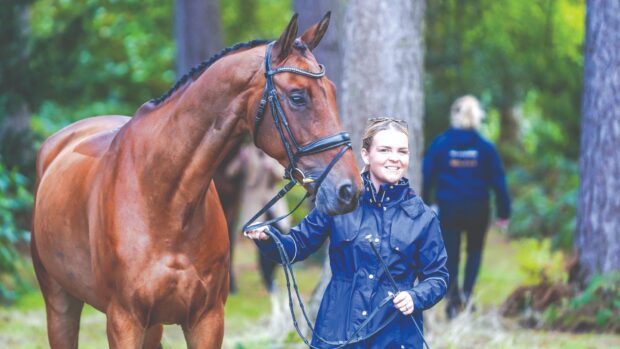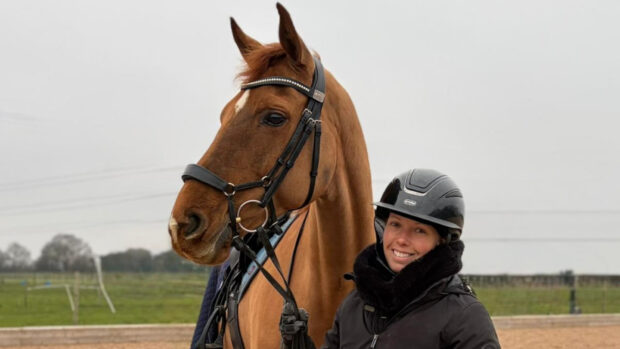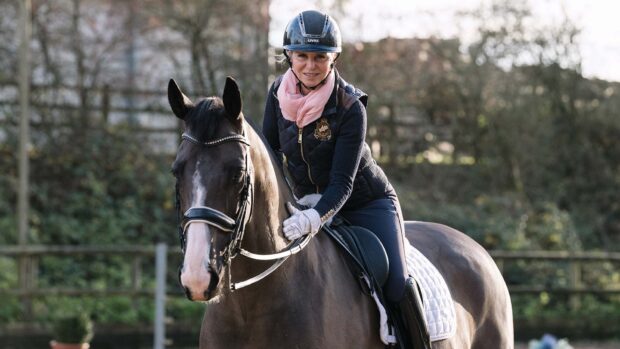A groom who spent years earning £200 for working +70-hour weeks in breach of employment law in a top competition yard said she is not surprised by staff shortages.
The groom, who asked not to be named, contacted H&H in response to comments about the difficulty of finding grooms.
She said she spent four and a half years working for an eventer. She was not on the books, without regular days off, holiday pay, a contract or other legal requirements.
“It’s no wonder if competition yards can’t get anyone,” she said. “I was paid £200 pounds a week. I got accommodation and had a horse there but I had to pay things like my wi-fi, and my horse’s hay, bedding and feed.
“From other grooms I’ve met too; often people aren’t treated well. There would be the event days when you got up at 2.30am and didn’t get back till 10pm, and you never got paid overtime or time back. And although it isn’t about the money, it also has to be; if you ever wanted to buy a house, you just couldn’t on that wage.”
The groom moved to racing, and for the past year and a half has been paid £450 per week, plus overtime of between £300 and £400 per month. She works about 55 hours, with a day and a half off, per week.
“I get 28 days’ paid holiday a year, sick leave, contracts, everything,” she said. “Any job with horses is physically and mentally draining but having that day and a half off is time to rest, do what you want to do and rest, and it makes a big difference to how you cope with the workload.”
The groom said in her previous job, the work day started at 7am and finished between 10 and 12 hours later, with lunch eaten on her feet “between tacking up horses”, and no time to ride her own horse.
“I absolutely loved the job, the horses, the owners and the support team, and I think that’s what kept me there so long,” she said. “It took probably two years for me to leave; I’d moved away from my family and I lived there so it was really hard to leave when I had nowhere to go. But unfortunately my favourite horse died and I thought ‘I’m not doing this any more’.”
The groom says although there are good employers adhering to the law and treating staff well, much of the industry has to change.
“It needs to be regulated; it’s not legal, what I experienced,” she said. “People have to be on the books, and have time off and be cared about. How do they get away with it?
“I’d look around the yard and see the new arenas and buildings and think my boss could have paid us more, but if you said you’d get paid more working in Tesco, they’d say ‘Go and work in Tesco then’. The priorities in a lot of places are wrong.”
She added that there was a high turnover of staff at her previous job, and that an “attitude change” is needed on the part of some employers.
“People have to wake up and realise that times have changed, and the industry can’t keep on as it is,” she said. “Of course there are bad employees as well as employers and some people are lazy and don’t want to work, but for everyone I’ve met like that, there are about five that are really good — and those are the one who will go elsewhere.
“I think if a lot of riders had more respect for their grooms and were grateful for them, the industry would be a better place.”
You might also be interested in:

‘Something has to change’: groom speaks out over ‘peanuts’ pay
Groom offered illegal employment by five prospective bosses

‘It seems like nobody wants to work’: Jay Halim on the equine industry staffing crisis

International grooms to be registered with and recognised by the FEI *H&H Plus*

Outcry over dormitory tents for WEG grooms: Tryon apologises
Grooms arrived at the World Equestrian Games to find their promised accommodation consisting of rows of bunk-beds in dormitory tents

Majority of grooms earn less than minimum wage
The Equestrian Employers Association has been launched following a revealing survey

Subscribe to Horse & Hound magazine today – and enjoy unlimited website access all year round
Horse & Hound magazine, out every Thursday, is packed with all the latest news and reports, as well as interviews, specials, nostalgia, vet and training advice. Find how you can enjoy the magazine delivered to your door every week, plus options to upgrade your subscription to access our online service that brings you breaking news and reports as well as other benefits.




